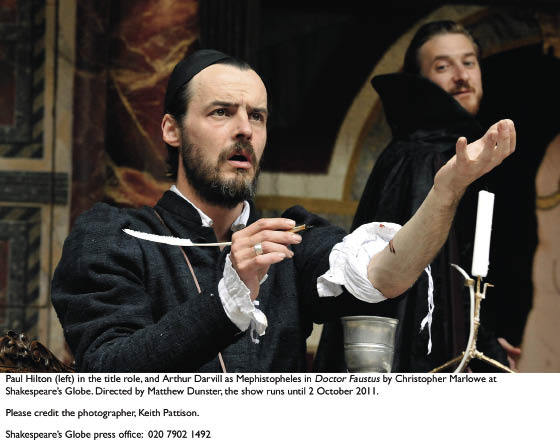Sir Tom and Sir Trevor — Stoppard and Nunn — have teamed up to realise Sir Trevor’s ‘40-year dream’ of bringing Sir Tom’s breakthrough play to the West End.
Sir Tom and Sir Trevor — Stoppard and Nunn — have teamed up to realise Sir Trevor’s ‘40-year dream’ of bringing Sir Tom’s breakthrough play to the West End. I couldn’t make the opening night and Sir T (x 2) had restricted press seats to that performance only so I had to make my own arrangements. What a bunch of highwaymen those ticket agencies are! (I’ll get to the play in a second.) You have to pay for the privilege of paying for the privilege. The fee amounted to 20 per cent of the entire outlay. But the author’s royalty is barely a quarter of that. Playwrights, retire. Become ticket agents instead. My cheap-seat status banished me from the opulent foyer and out on to the windy pavements where I pulled open a rickety old door, ascended three flights of carpetless steps and came out into a creaky platform of uncushioned tramseats. I was in the gods. Luckily, the show hadn’t sold out and the thoughtful staff gave me the option of un-deification. Gratefully returning to the ranks of humankind, I descended to the upper circle where I relaxed in an unfilled seat. This is by far the best part of the house. I’ve never liked the stalls where a big bonce or a Winehouse hairstyle can obscure your view. And the ground floor gives you a mouse-to-elephant perspective whereas a more exalted perch with a downward eye-line is more congenial. The acoustics are perfect too. Actors are trained to ‘project to the back wall’ and that’s where you are, ideally placed to hear the words at conversational pitch. So, the play, the play. It’s a masterpiece. Everyone knows that. Or is it? Certainly, if you use masterpiece in its original sense as the work produced by a mature apprentice to demonstrate his readiness to graduate from his teacher’s studio and set up independently. But I’m not convinced it’s a timeless classic.
Stoppard’s concept is inspired. He takes us to Elsinore and the fringes of Shakespeare’s Hamlet where we follow two minor players as they try to make sense of the incey-wincey role they’re playing in momentous events. The script’s gleeful, prancing wordplay — I almost wrote swordplay there — is dazzling. Death is ‘the absence of presence’. Athenian tragedy is referred to as ‘the great homicidal classics’. One character mocks another’s reluctance to believe in the existence of England: ‘So what is it?’ he says.‘A conspiracy of cartographers?’ The lucky ones who first watched this lexical conjuring act must have wished the script would last for ever. Today we sense a lack of crispness in the closing scenes and a want of emotional density throughout. Stoppard, perhaps aware of this shortcoming, tried to compensate by making the players voice his own misgivings. ‘All we get is incident,’ complains one character, ‘when what we want is sustained action.’ And sustained traction too. Some engagement with our feelings. Nunn’s stylish production does justice to the play’s larkiness and good cheer but nothing can quite obscure the sensation that one is watching circus tumblers performing in zero gravity. There’s skill and dexterity aplenty but nothing is at stake, nothing is risked. Nothing is earned or learned.
Matthew Dunster has chosen to direct Dr Faustus by Marlowe at the Globe. Brave man! Dr Faustus, a restless genius, is bored with being cleverer than anyone else in Germany so he does a deal with Mephistopheles and in return for superhuman powers he agrees to forgo any chance of attaining a place in heaven. And what does he do next? He makes himself invisible, travels to Rome and disrupts a banquet by hitting the Pope with some meat. This merriment is purchased at a price — everlasting damnation — which even the most committed practical joker might consider a bit steep.
There are sublime moments in this play, particularly during the encounter with Helen of Troy, but its lofty reputation is scarcely deserved. The triviality of Marlowe’s preoccupations and his appetite for low comedy constantly undermine the play’s ambitions. And for a post-Enlightenment audience the script is all but impossible to stage. The goblins and demons that torment Faustus have to seem genuinely scary during the serious bits and entirely ridiculous during the silly bits. The production doesn’t quite resolve either half of that equation. Paul Hilton is a decent and strangely good-natured Faustus. Pearce Quigley, as his sidekick Robin, turns in a great comic performance. He knows exactly how to get the most out of the Globe’s magical atmosphere without overdoing it.
I should add that I was alone in failing to relish every minute of this show. The entire house, including the groundlings who had had to stand upright for nearly three hours, cheered and whooped at the end.







Comments